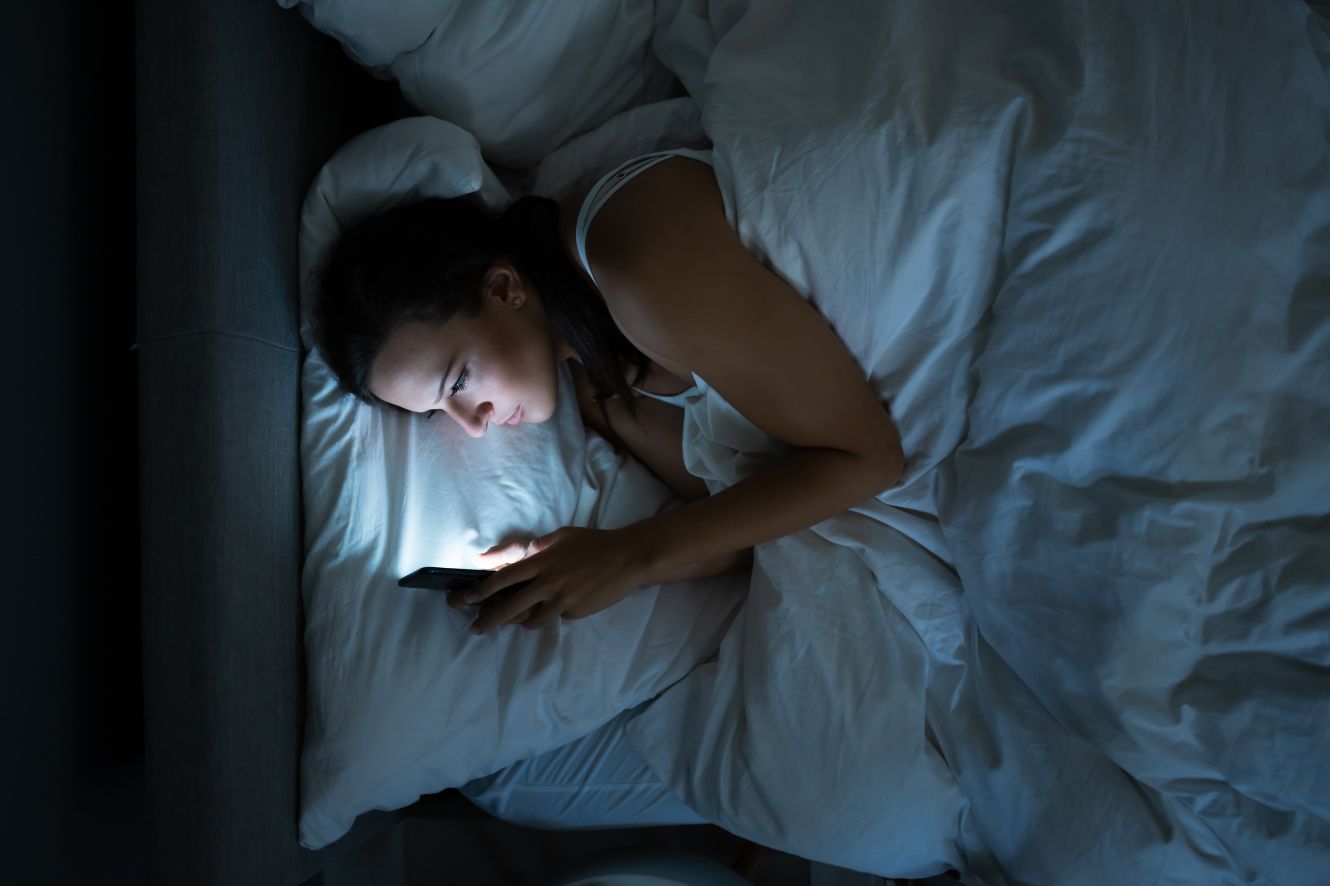You likely go about your day without even realizing how often you view blue light. You’ve probably also heard that too much blue light isn’t good for you. This brief overview explains blue light and how it affects your health. We’ll also provide tips for protecting yourself from its effects.
What Is Blue Light?
Blue light is part of the visible light spectrum. It has the shortest wavelength and the highest energy—making up one-third of all visible light. Sunlight is the greatest source of blue light, but you can find it in artificial light sources, such as your smartphone, laptop, TV, and fluorescent bulbs.
How Does Blue Light Affect Your Eyes and Health?
Sunlight is great for your health, but too much artificial blue light can negatively affect your health. Human eyes don’t filter blue light well, so nearly all blue light passes through the cornea and to the retina.
Overexposure to blue light can damage your retina and cause vision problems, cataracts, and even eye cancer. You don’t blink as much when sitting in front of a screen, which causes eye strain and dry eyes. Children are more vulnerable to blue light than adults because their eyes absorb more blue light.
Note that you will be exposed to more blue light through sunlight, but constantly sitting in front of a screen can also have negative long-term effects.
How Does Blue Light Affect Your Sleep?
Because blue light has the shortest wavelength and highest energy, it has the strongest impact on your health. Blue light disrupts your circadian rhythm by preventing your body from producing melatonin.
A disruption to your sleep patterns can affect your health. When you don’t get sufficient sleep, you’re at risk for diabetes, sleep disorders, cardiovascular disease, and much more. You might not notice a difference right away, but the longer you stare at your used smartphone at night, the harder it will be to fall asleep.
How To Protect Yourself From Blue Light
You can protect yourself against blue light in many ways. First and foremost, cut down your screen time and avoid screens before bed. Consider setting aside a specific time of day for personal screen time, and get into the habit of putting your devices away at least one hour before bed.
If you need to use a computer or tablet for work, purchase blue light glasses. These glasses can filter the blue light so it doesn’t cause eyestrain. Many devices have built-in features that lower blue light on the screen, so take advantage of that option.
As for protecting your skin, sunscreen fights against UVA and UVB rays. Apply this every day, regardless of your plans to go outside.
Now that you know why too much blue light isn’t good for you, you can protect yourself against its effects. Be mindful in front of artificial light, and use our suggestions to protect your well-being!



